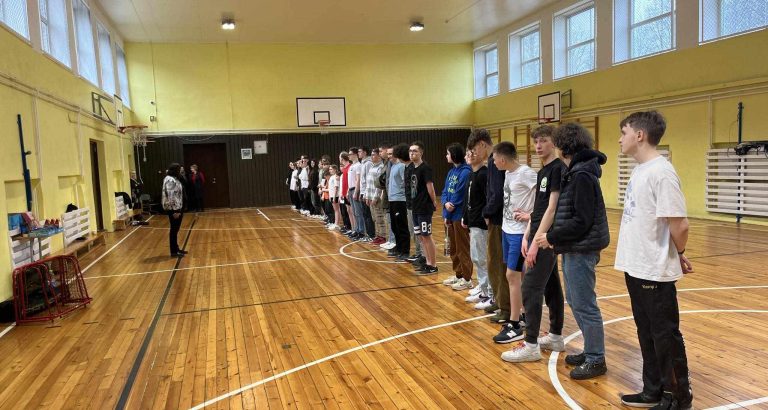Международный проект и конференция в Будапеште (2013 г.). Наша средняя школа участвовала в этом проекте, где учащияся Вероникой школы вместе с учителем читали лекцию на этой международной конференции (Будапешт). Соответствующая книга издана на английском языке (см. Ниже).
Staying Civil – project
“We are aware of the fact that the community has the power to sustain – this assures the individual that he does not stand rootless, he is not alone in the world, and he is not a one dimensional person, whose single task is consumption, by which he maintains the balance envisioned by the great economic schools, but he is a person with the capacity to experience the unity of body, soul and intellect. Value based communities help the individual to become an autonomous transcendent creature, who makes his decisions based on his own value judgment and assumes responsibility and for them. It is important to realize that European democracies are in a crisis, but the realization itself is not enough for us to move on. We need to point out that without the active social involvement of the civil sphere we cannot move on since the state as a framework is filled by society. Therefore, civil society needs to inspire the state by its own involvement, it needs to take the state towards new solutions and it needs to evoke new responses from it.”
György Hölvényi
Ministry of Human Resources
Minister of State for Church,
Minority and Nongovernmental relations
Participants of the project:
- Hungary
- Germany
- Croatia
- Ukraine
- Bulgaria
- Estonia
- Polish
- Italy
- Slovenia
- Slovakia
- Ireland
Themes, developed by the project participants:
- Civil Economy in the 15th Century and Today (by Sarolta Laura Baritz)
- The Role of Civil Society and Ethics in the Relations of Social Subsystems (by Tamás Fricz)
- Who Will Tell? Values, Civilians, Minority Communities – To Whom, When and How? (by Barna Badó)
- Civilization, Culture and Morality (by Bulcsu Kái Hoppál)
- The Ethics of a Writer (by Jerzy Snopek)
- A Few Thoughts on the Civil Code of Ethics (by Dr István Sebestény)
- Momentum Doctorandus as an Example of Non-governmental Organizations in Transcarpathia (by Gyula Balla)
- The Union for Common Objectives, Slovakia Empowering the Hungarian Minority by Means of Non-governmental Organizations (by Erzsébet Pogány)
- The Fragmented Man and Moral Education (by Michele Sitá)
- The Relationship Between Funding and Independence (by Anja Kladar)
- Civil Code of Conduct in the European Union: What Can Ordinary People Do? (by David Masters)
- Who Will Blow the Whistle? How Corruption Undermines Bulgarian NGOs (by Emil Tsenkov)
- Taking Steps Towards Ethical Behaviour (by Harry Underwood)
- Code of Ethics – Lessons from the Critics (by Pawel Urgacz)
- Democracz Monitoring as a New Mechanism to Support the European Economy (by O.Wolf, Estonia)





